The Merino Sheep of Gómez Coronado: Tradition and Excellence in Livestock Breeding in Extremadura
Gómez Coronado Farm
Located in the heart of Quintana de la Serena, Badajoz, within the Extremadura region of Spain, is La Finca Gómez Coronado. This family livestock farm has a history deeply intertwined with the agricultural landscape of the 20th and 21st centuries. Its importance lies in its specialization in Merino sheep breeding, a practice distinguished by tradition and an unwavering commitment to excellence in Extremadura . The world-renowned Merino breed has its historical roots in Spain, which establishes a significant context for the farm's work . This text aims to delve into La Finca's rich history, detail its specialized practices in breeding the prized merino sheep, and highlight its dedication to sustainability.
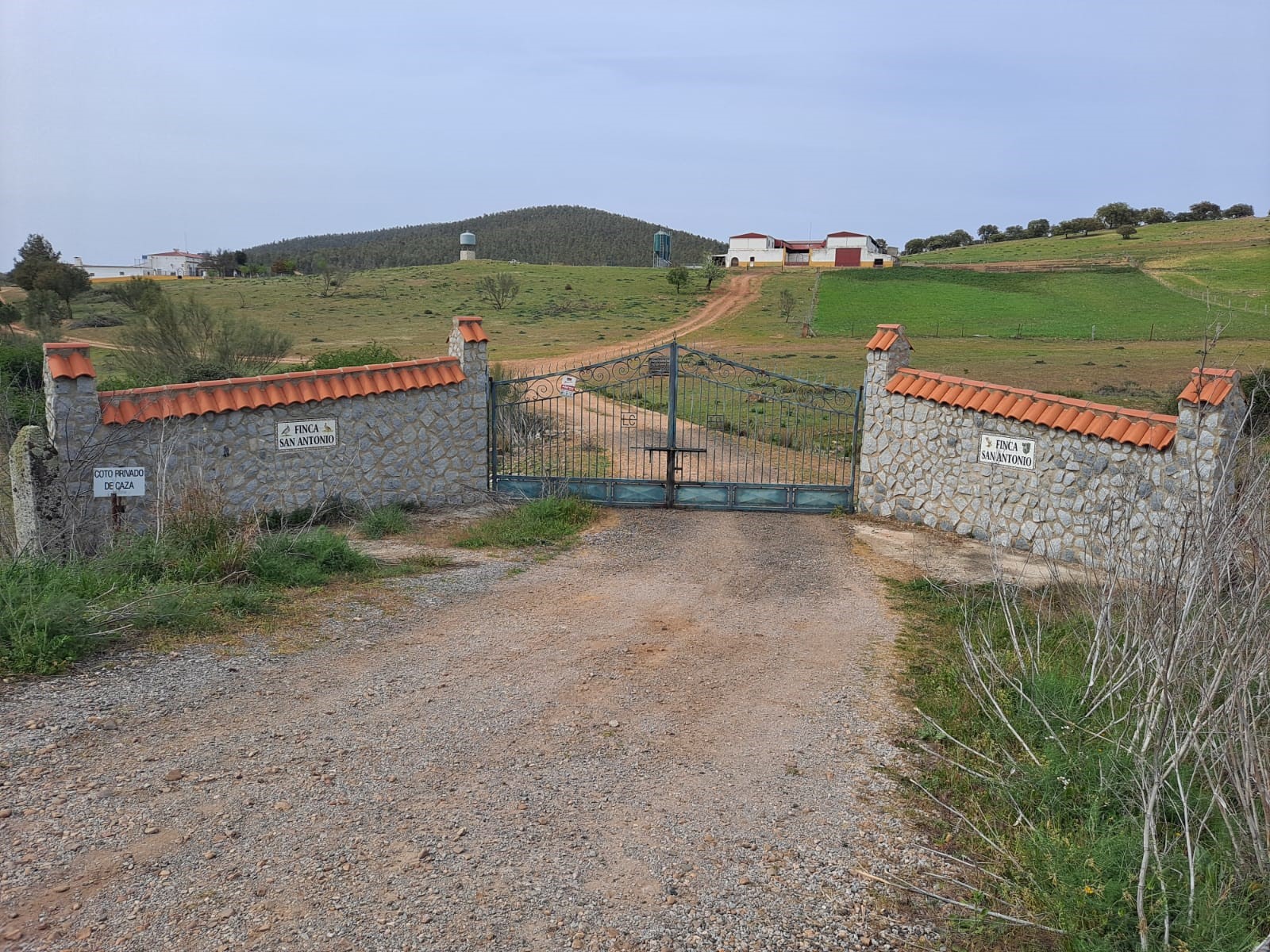
Main view of the facilities at Finca San Antonio de Gómez Coronado.
The History of Gandería Gómez Coronado and the Merino Sheep
The Enduring History of La Finca: Generations Dedicated to Merinas in Extremadura
The history of the Gómez Coronado family is characterized by a multi-generational dedication to cattle ranching within the Extremadura region. The farm has maintained a constant presence and played an important role within the local community of Quintana de la Serena, illustrating a deep-rooted tradition. Over the decades, the farm has undergone an evolution, adapting to changes in agricultural practices and overcoming significant milestones that highlight its resilience and commitment to the Merinas. The continuity of La Finca over time, passing from generation to generation, suggests a deep understanding of the particularities of merino farming in the specific environment of Extremadura. This historical trajectory conveys reliability and a mastery cultivated over the years, which is especially valuable for those seeking authentic products or collaborations. The farm's connection to the livestock tradition of Extremadura, a region historically renowned for its important sheep industry, further underscores its heritage. In addition, Extremadura is characterized by traditional and ecologically valuable agricultural systems, such as the "dehesa", a unique agroforestry system. The way in which La Finca integrates its practices within this traditional landscape not only highlights its commitment to sustainability, but also appeals to environmentally conscious consumers and those interested in the cultural heritage of Spanish agriculture.

The Majestic Merino Sheep: Spain's Gift to the Fine Wool World
The origins of the Merino sheep breed date back to medieval Spain, marking a crucial moment in the history of agriculture. Spain boasted immense historical importance as the birthplace of this highly prized breed, maintaining for a time a strict monopoly on its export, underscoring its economic and political relevance. The Spanish crown implemented stringent measures to preserve this monopoly, including export bans and severe penalties for those who attempted to circumvent them. Over time, the merino dispersed to other nations in Europe, Australia and the Americas, a process whose understanding reveals the breed's subsequent global influence. The etymology of the term "merino" is the subject of debate, with theories suggesting links to Berber tribes (Marini) or to the role of Castilian officials (merino) in sheep management . However, what distinguishes the Merino sheep is the exceptional quality of its wool, characterized by its remarkable fineness, unparalleled softness, distinctive crimp and desirable fiber length, attributes that make it a highly sought-after material in the textile industry . The fascinating history of the Merino breed, from its protected origins in Spain to its global prominence, adds significant depth and prestige to the La Finca Merino story. By integrating this rich historical context, the article enhances the perceived value and importance of the Merino sheep raised at La Finca, connecting the farm to a prestigious and globally recognized lineage, which appeals to a wider audience interested in history and heritage.
The Distinguished Merinas of La Finca: Breeding for Excellence in Extremadura
MERINES
Merinos bred at La Finca exhibit specific physical and wool characteristics, in line with the generally recognized traits of the breed. Their size is usually medium and their fleece predominantly white, although the presence and importance of the black merino variety in Extremadura is also recognized. The quality of its wool is defined by attributes such as fineness (measured in microns), density, fiber length and other desirable characteristics crucial for textile applications. The breeding philosophy and specific practices employed at La Finca emphasize its dedication to maintaining pure Merino sheep lines and its strategic focus on continuous genetic improvement.
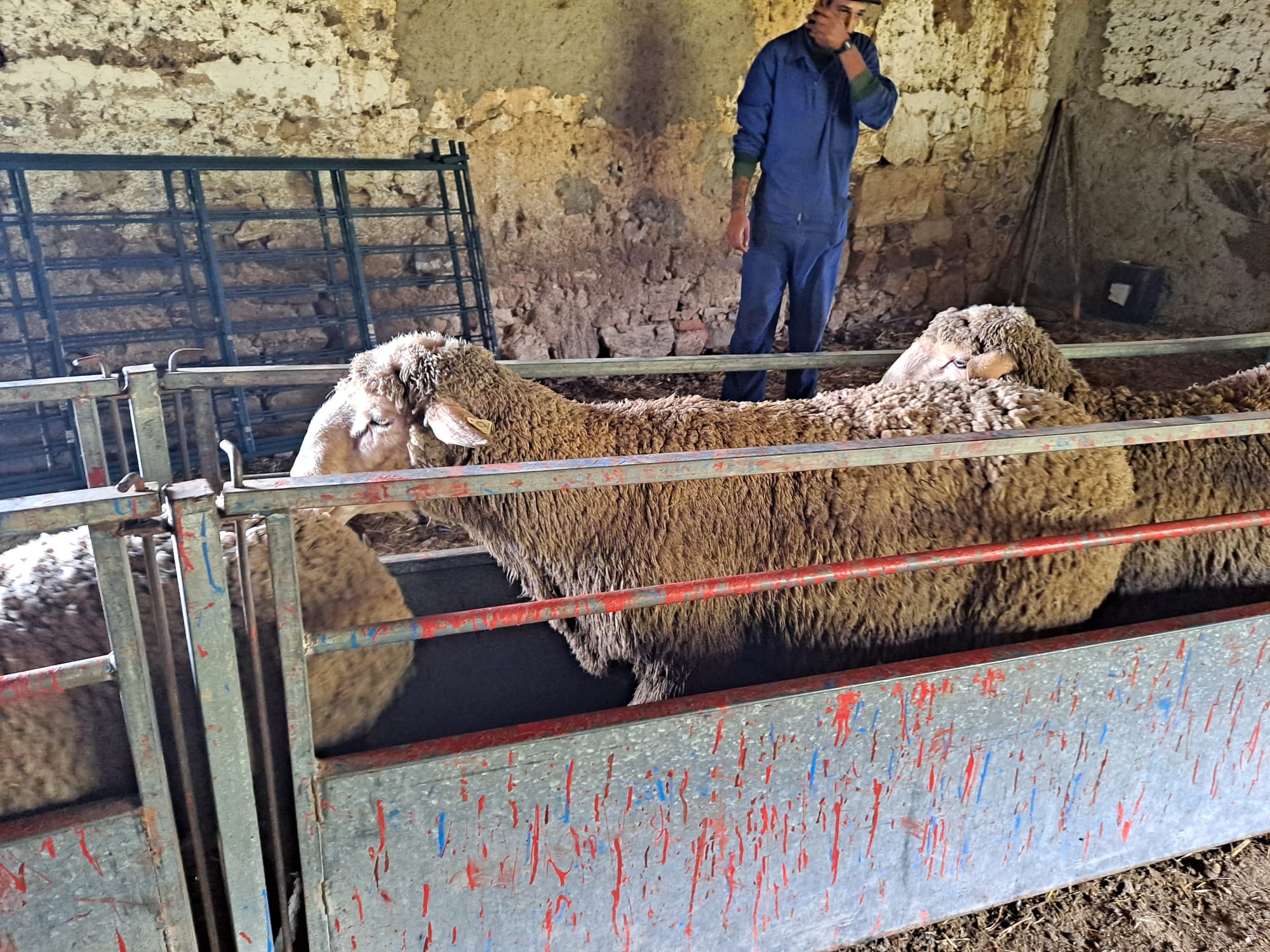
The farm prioritizes certain genetic lines and pursues specific breeding objectives, such as improving wool quality, increasing resistance to the local climate or optimizing maternal traits. By meticulously detailing the specific characteristics and breeding approach of its Merino sheep, La Finca is able to effectively differentiate itself from other sheep farms, highlighting its commitment to quality and specialization. This level of detail appeals to discerning customers who value high-quality, carefully bred Merino sheep or wool. It establishes La Finca as experts in their field and reinforces their dedication to excellence. In addition, the "dehesa" ecosystem plays an integral role in the health, well-being and overall quality of its Merino sheep, emphasizing the benefits of natural grazing and the farm's contribution to local biodiversity.
The Art and Science of Merino Sheep Breeding at Gómez Coronado: A Commitment to Genetic Advancement
The specific selection processes used at La Finca for its merino sheep breeding program are based on detailed criteria and methods. When selecting rams and ewes for breeding, particular traits and qualities are carefully considered. In its breeding decision-making process, the farm may employ modern technologies, data analysis or genetic testing. The various historical and contemporary genetic lines within the Merino breed, such as the historically significant Real de Escorial, Negretti and Paula lines, are relevant, and La Finca's breeding program may focus on a specific lineage or seek to incorporate particular genetic traits. Organizations such as the National Association of Merino Cattle Breeders (ACME) in Spain play a crucial role in the preservation and promotion of the breed, and La Finca may participate in or adhere to the standards set by such organizations. By elucidating the scientific rigor and expertise behind its breeding program, La Finca can further enhance its reputation as a leading breeder of high-quality Merino sheep. This section is especially appealing to readers with a deeper understanding of animal science and genetics, solidifying La Finca's authority and expertise in the field. It is important to consider the historical breeding programs that shaped the Merino breed in Spain, including the important influence of the Mesta, the powerful guild that historically controlled and improved the quality of the breed.
Ganado sostenible
Completamente autosostenible y ayuda a mantener grandes extensiones de pasto y terrenos en un estado óptimo
El mejora abono para la tierra
Además de limpiar tierras de cultivo de matas y malas hierbas de forma sostenible, es un agente de abonación natural que aporta un gran rendimiento a la tierra.
No contamina
La sostenibilidad abrazada a lo ecológico
Es una raza extensiva
Todas nuestras ovejas viven en fincas con grandes extensiones de pasto, consiguiendo mejorar sus características y su vitalidad de forma natural.
Sustainability at the Heart of La Finca: Responsible Merino Sheep Farming
Merino Sheep
The sustainable farming practices that are an integral part of La Finca's operations reflect a deep commitment to environmental responsibility in all aspects of its farm management. The farm employs specific environmentally friendly techniques and maintains healthy pastures using natural fertilization processes, contributing to the health of the soil.
The Farm plays a role in contributing to the health and biodiversity of the unique "dehesa" ecosystem in which it operates. The animal welfare practices implemented on the farm ensure the humane treatment and well-being of its merino cattle by providing appropriate living conditions and health management protocols. The growing global importance of sustainability in modern agriculture is reflected in La Finca's practices, demonstrating its forward-looking approach. By prominently displaying its commitment to sustainability, La Finca can effectively appeal to a growing segment of consumers who prioritize ethical and environmentally responsible agricultural practices. This emphasis on sustainability not only enhances La Finca's brand image, but also aligns with global trends and can attract customers willing to pay a premium price for responsibly produced products.
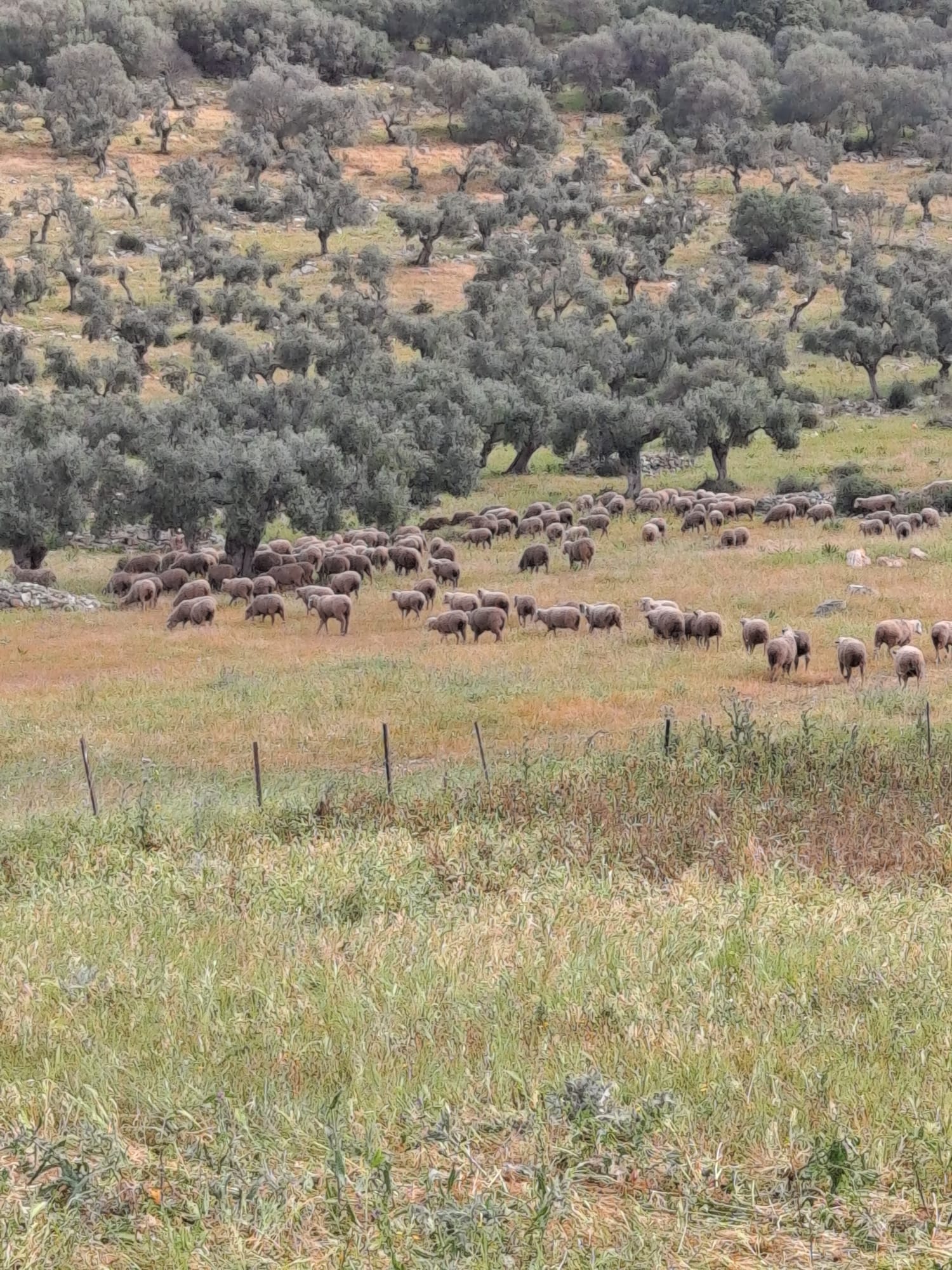
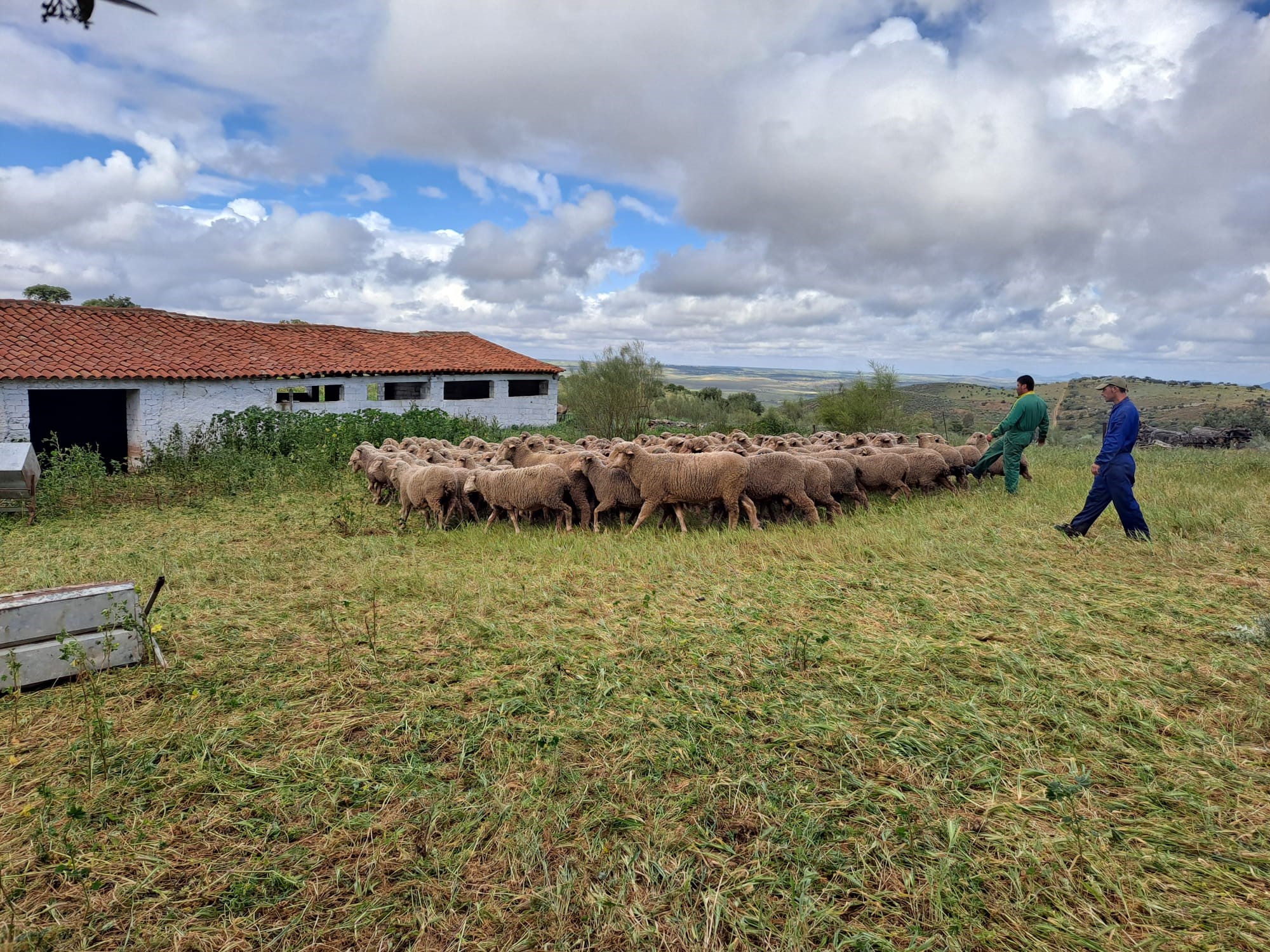
The Economic Significance of the Merino Sheep and La Finca's Contribution to Extremadura
Historically, the Merino sheep has been of immense economic importance in Spain, especially through the wool trade, which for centuries played a key role in the country's economy. The Mesta, the powerful guild of sheep owners, exerted a profound influence on the Spanish economy and played a regulatory role in the wool industry. Today, Merino sheep farming continues to have a significant economic impact in the Extremadura region, encompassing the production of meat (including specialized products such as "Pascual" lambs), milk (used for distinctive regional cheeses) and wool. Pascual" lambs and renowned cheeses made from Merino milk, such as Serena and Torta del Casar, are specific products of the region. La Finca plays a crucial role as a contributor to the local economy and the livelihood of rural communities within Quintana de la Serena and the wider Extremadura region. By contextualizing La Finca within the broader economic framework of Merino sheep farming in Extremadura, the article highlights its importance to the regional economy and heritage. This section can attract local interest, potential commercial partnerships and highlight La Finca's positive impact on the community, reinforcing its value beyond a simple commercial enterprise.
Merino Wool: A Natural Fiber of Unsurpassed Quality from La Finca Pastures
Merino wool is classified into different grades according to the diameter of its fiber, measured in microns, and these grades have specific applications within the textile industry. Ultrafine (less than 17.5 microns), superfine (17.5 to 19.5 microns), fine (19.6 to 22.5 microns), medium (22.6 to 29.5 microns) and strong (more than 30 microns) merino wool have different characteristics and uses. These grades are used in the production of a wide range of garments, from base layers to outerwear, as well as insulation materials and other textile products. The unique properties inherent in merino wool, such as its exceptional breathability, superior moisture absorption capacity, natural temperature regulation, inherent odor resistance and its sustainable nature as a renewable and biodegradable resource, make it highly desirable. If La Finca is involved in wool production, it is important to highlight the quality of its wool and its potential end uses, relating it to the different grades of Merino wool. By providing detailed information on the various grades and properties of merino wool, the article offers significant educational value to readers, especially those interested in textiles and the qualities of natural fibers. This section appeals to a different segment of the audience, those interested in the end product of Merino sheep farming: wool. Indirectly, it can promote the high quality of the sheep raised at La Finca, which implies the superior quality of their wool.
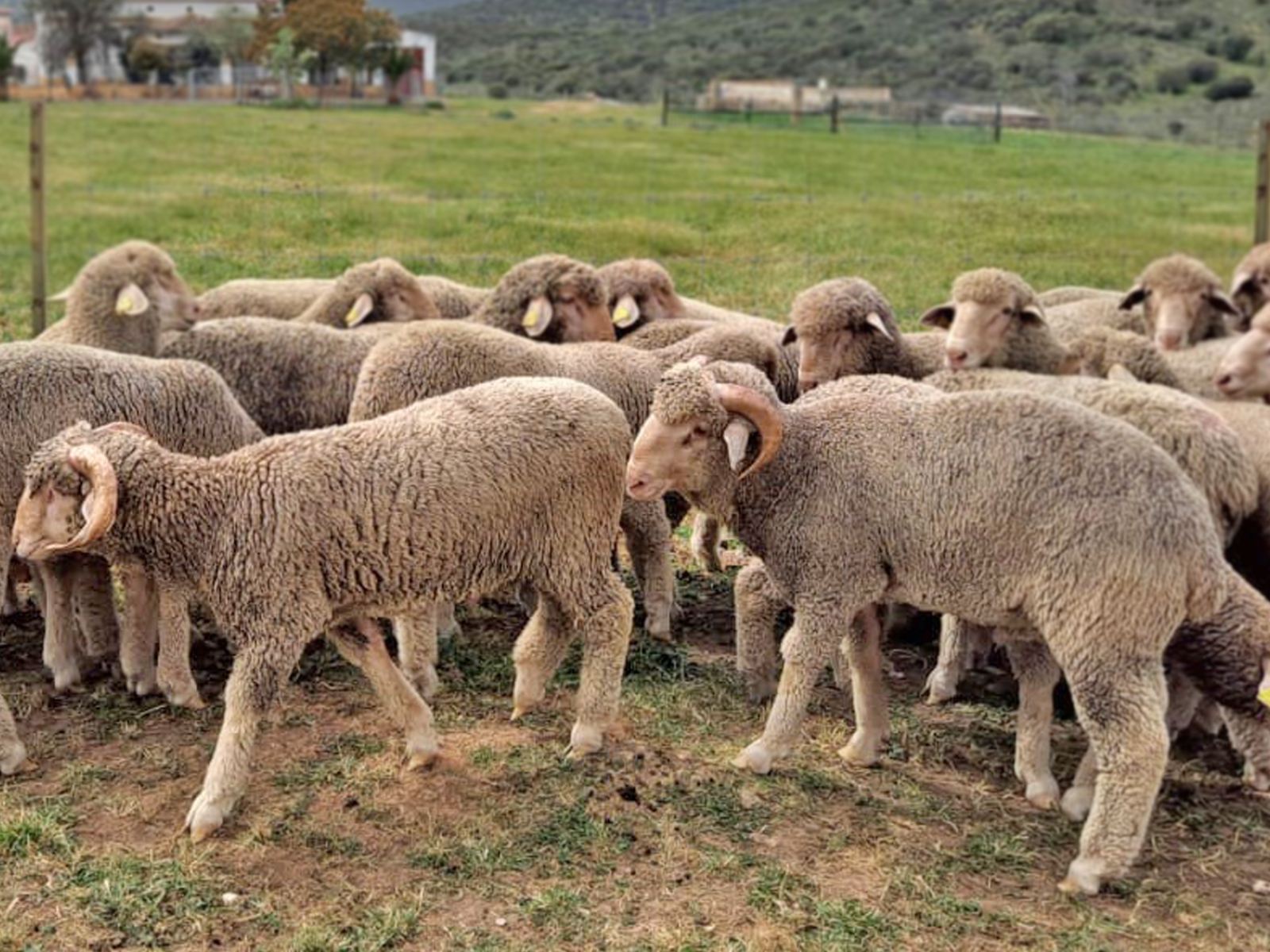
The Cultural Tapestry of Sheep Breeding in Extremadura and the Role of Merinas
Sheep farming has a rich and immutable cultural significance within the region of Extremadura, deeply rooted in its history and maintaining a continuing importance in local identity. Traditional practices such as transhumance, the seasonal migration of sheep, have historical and contemporary relevance in Extremadura. Sheep, particularly Merino sheep, play an integral role in local cuisine and gastronomy, with traditional lamb dishes and regional cheeses made from sheep's milk. In the region there may be festivals, cultural events or local traditions specifically related to sheep farming. Within this broader context of sheep farming in Extremadura, the Merino sheep has a particular importance and cultural value. Traditional sheep farming, including Merino sheep, plays a crucial role in the maintenance of the unique "dehesa" landscape and its associated cultural heritage. By emphasizing the deep cultural heritage associated with sheep farming in Extremadura and the central role of merinas within this tradition, La Finca can forge a stronger emotional connection with readers. This section appeals to readers who appreciate the cultural and historical dimensions of farming, adding a layer of authenticity and heritage to La Finca's story, making it more engaging and memorable.
Looking to the Future: The Gómez Coronado Farm and the Continued Excellence of the Merino Sheep
La Finca's vision for the future of its merino sheep breeding program is focused on continuing its legacy of excellence. This includes plans for strategic growth, the development of sustainability initiatives and continued efforts in genetic improvement. The farm is also prepared to adapt to new challenges within the agricultural sector and changing market demands. Its unwavering commitment to maintaining tradition and the pursuit of continued excellence in merino breeding within the Extremadura region remains paramount. By sharing its future aspirations, La Finca conveys a sense of dynamism, innovation and a long-term dedication to the Merino sheep industry. This forward-looking perspective assures readers of La Finca's continued commitment and adaptability, instilling confidence in its future as a leading merino breeder.
Finca Gómez Coronado represents a legacy of dedication to Merino sheep breeding in the Extremadura region. Its rich history, specialized breeding practices and strong commitment to quality and sustainability distinguish it as a significant farm within the Spanish agricultural landscape. The farm makes an important contribution to the esteemed heritage of the Merino breed, keeping traditions alive and looking to a future of continued excellence.
